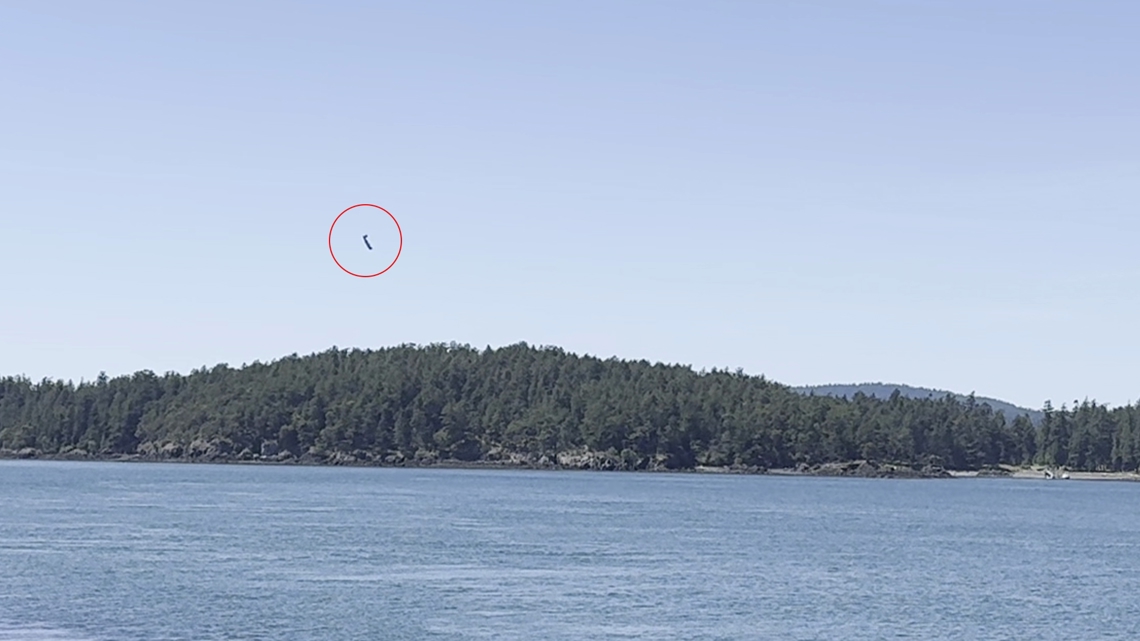Former NASA astronaut Bill Anders was flying plane that crashed in San Juan Islands
Coast Guard officials say they responded to an area between Orcas and Jones Islands. Former NASA astronaut Bill Anders was piloting the plane that crashed in the San Juan Islands, according to his son, Greg. The Coast Guard responded to an area between Orcas and Jones Islands. The plane was flying from north to south before crashing into the water near the north end of Jones Island. The NTSB confirmed that the plane is a Beechcraft A A 45, also known as a T-34, and that the airplane hit the water about 80 feet offshore of Jones island. Once recovered from the water, the plane will be transported to an offsite facility for further examination. A preliminary report will be available within 30 days and a final report, including the cause of the crash, will be released within 12 to 24 months.

Pubblicato : un anno fa di KING 5 Staff in Science
Coast Guard officials say they responded to an area between Orcas and Jones Islands.
Example video title will go here for this video
Example video title will go here for this video
DEER HARBOR, Wash. — Former NASA Astronaut William "Bill" Anders was flying the plane that crashed in the waters of the San Juan Islands on Friday, his son, Greg, confirmed with KING 5.
"The family is devastated. He was a great pilot. He will be missed," a statement from the family reads.
The first report of the crash came in around 11:40 a.m., according to the San Juan County Sheriff's Office. The caller reported the plane was flying from north to south, before crashing into the water near the north end of Jones Island.
The NTSB said the plane is a Beechcraft A A 45, also known as a T-34 and that the airplane hit the water about 80 feet offshore of Jones Island.
Once the aircraft is recovered from the water, the NTSB said the airplane will be transported to an offsite facility for further examination by investigators. A preliminary report will be available within 30 days and a final report, including the cause of the crash, will be available within 12 to 24 months, according to the NTSB.
Philip Person and his wife witnessed the crash from their cabin. He said the two were looking west toward Jones Island - watching seals and other wildlife - when they saw a small plane heading north.
The plane began doing what appeared to be a loop and became inverted. The pilot appeared to try and pull up before the plane hit the water, according to Person.
"But it was too low and ... it didn't clear the water," he said, adding that it appeared that one of the plane's wings clipped the water before crashing, bursting into flames.
"I could not believe what I was seeing in front of my eyes," Person said. "It looked like something right out of a movie or special effects. With the large explosion and flames and everything."
They immediately called 911 and were told by dispatch that multiple calls were coming in about the crash.
Maj. Gen. Bill Anders, 90, was a member of the Apollo 8 space mission, which was the first crew to reach the moon in 1968. He took one of the most famous photographs of the Earth rising over the lunar horizon.
“On our third orbit around the moon, I looked out the window and thought, man! That’s really something,” said Anders. “So, I took out the camera.”
“It showed how fragile the Earth was, how small the earth was and it basically kickstarted the environmental movement," Anders said. "We'd come all the way to the moon to study the moon and we discovered the Earth.”
Temi: Space, NASA
